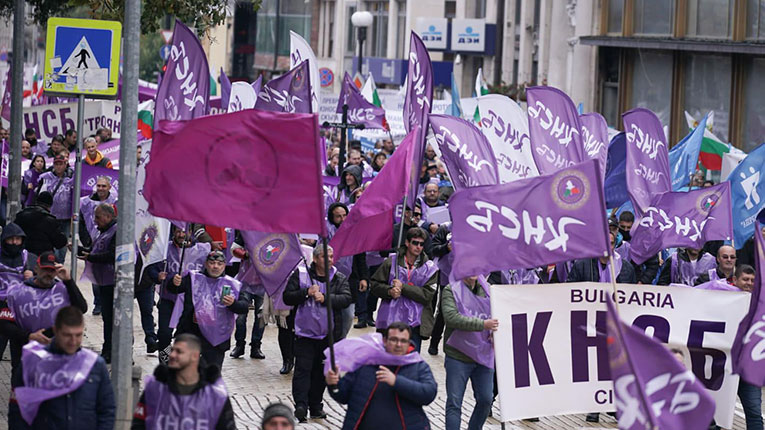About 1,000 miners and workers at Bulgaria’s largest coal-fired power plant marched on the streets of Sofia on Wednesday to protect their jobs and urge the government to support the mining industry, Reuters reports.
Protesters have called on the Sofia cabinet to guarantee that it will not rush to close mines and power plants at the Maritsa East lignite complex in southern Bulgaria, despite EU plans to decarbonise the bloc’s economy by 2050.
“It has to be green and clean energy, but it takes time to make investments first,” said Spaska Ruskova, 58, who works for a mining company. “It will probably happen to our grandchildren, but it can’t happen now because hundreds of families will lose their jobs and pay higher electricity bills,” Spaska Ruskova added, according to Agerpres.
Bulgaria needs to set a date when it will phase out coal-fired electricity production if it wants to be able to benefit from funding from the European Recovery Mechanism and meet the climate goals of the EU bloc.
The interim government in Sofia has said it will present plans for a European relaunch fund on Friday. The Sofia cabinet said it would keep the target of shutting down coal-fired power plants in 2038 or 2040, roughly in line with miners’ demands.
The environmental NGO Greenpeace has called for the closure of the most polluting power plants by 2030 and urged Bulgaria to focus on renewable energy and job creation in mining regions.
Instead, protesters say an earlier shutdown of coal-fired power plants, which account for 40 percent of Bulgaria’s electricity production, would lead to problems with electricity supplies and rising bills.
About 10,000 people work at the Maritsa East lignite complex in southern Bulgaria, whose lignite deposits are blamed for poor air quality and respiratory diseases.
Unions say the complex provides a livelihood for more than 100,000 people in the EU’s poorest country and have vowed to continue putting pressure on the new government formed following the November 14 general elections.
